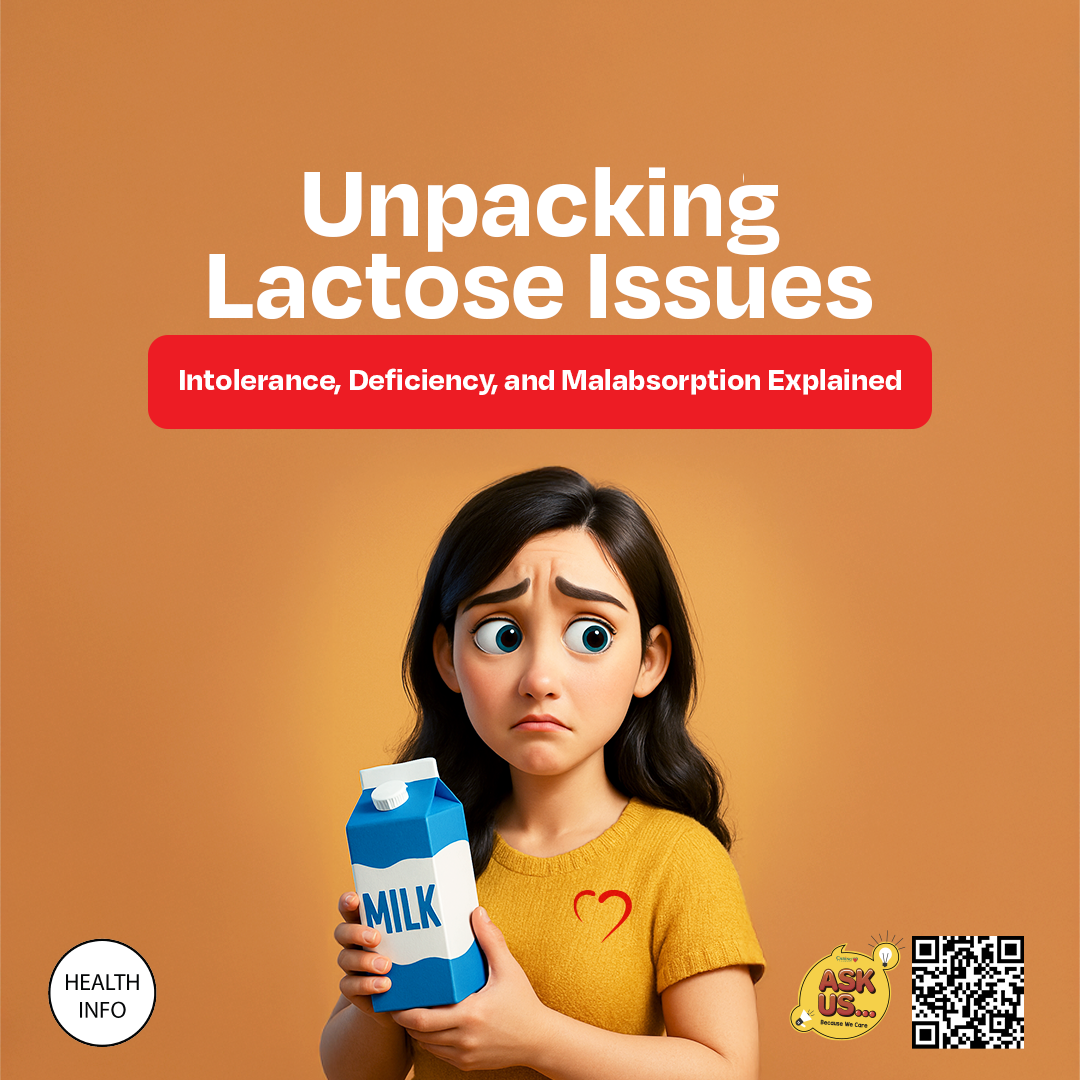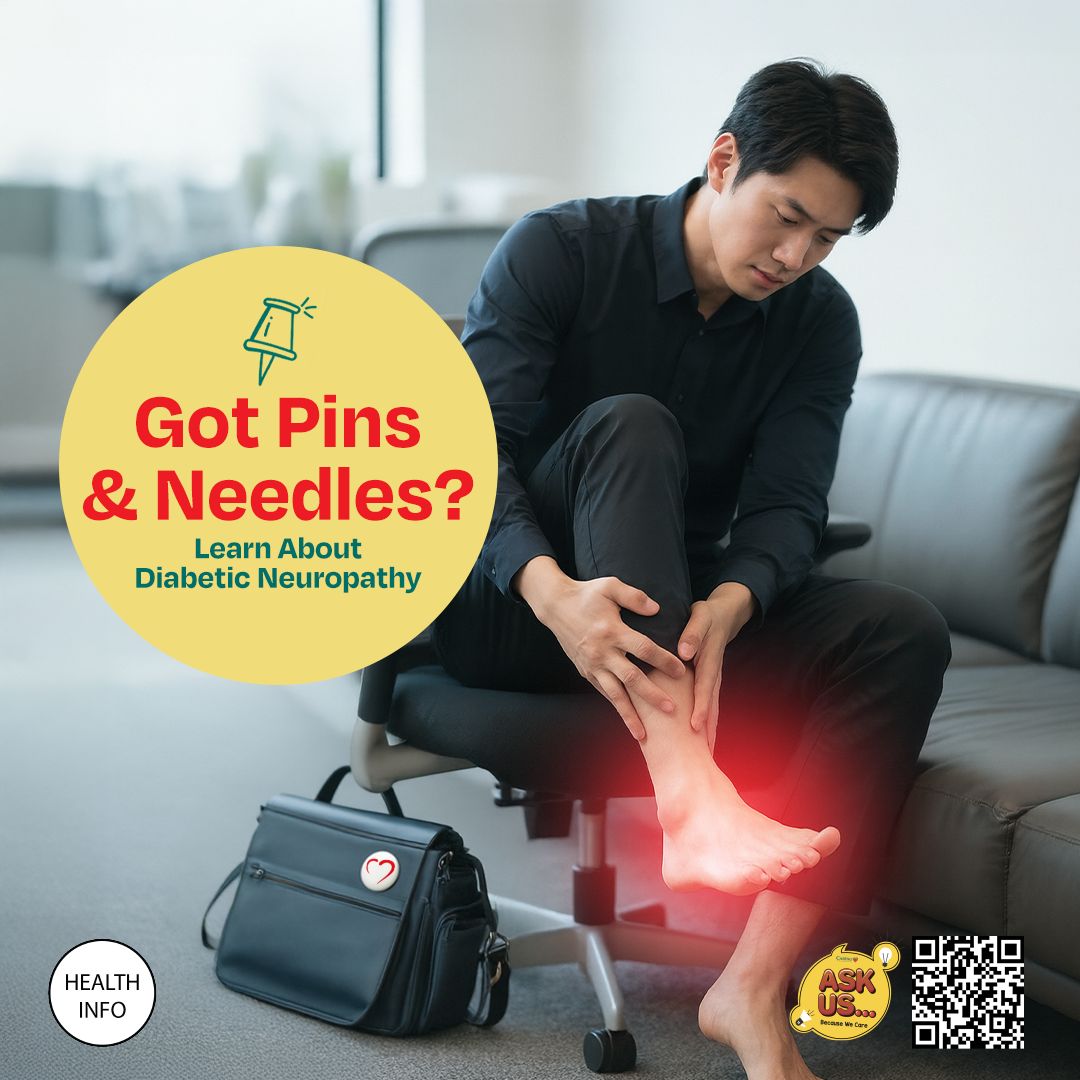- Home
- Health Center
- Health Info
- Unpacking Lactose Issues: Intolerance, Deficiency, and Malabsorption Explained
Supplements
Unpacking Lactose Issues: Intolerance, Deficiency, and Malabsorption Explained


Ever wonder why some people, or even yourself, are suffering from lactose intolerance?
Lactose, the primary sugar in milk and dairy products, is a nutritional staple for many¹. However, for some, consuming lactose can cause uncomfortable digestive symptoms. Thus, understanding the root causes of lactose intolerance can help to guide dietary choices, and improve the quality of life for many.
Lactase Deficiency: The Starting Point
Lactase is an enzyme produced in the small intestine that breaks down lactose into simpler sugars for absorption¹. Lactase deficiency occurs when the body produces insufficient amounts of this enzyme. This condition can be²:
- Primary: A natural decline in lactase production after weaning, common in many adults.
- Secondary: Resulting from damage to the small intestine due to infections, diseases, or treatments.
- Congenital: A rare genetic condition where lactase is absent from birth.
Lactase deficiency doesn’t always lead to symptoms, but it sets the stage for further complications.
Lactose Malabsorption: A Consequence of Deficiency
When lactase production is insufficient, undigested lactose passes into the colon. Here, gut bacteria ferment it, producing gases like hydrogen and causing symptoms such as bloating and gas. This condition is known as lactose malabsorption¹. It’s a process that doesn’t necessarily lead to discomfort but often does if large quantities of lactose are consumed.
Lactose Intolerance: The Symptomatic Response
Lactose intolerance refers to the uncomfortable symptoms resulting from lactose malabsorption. These symptoms include³:
- Diarrhea
- Abdominal pain
- Nausea
- Excessive gas
The severity of lactose intolerance varies, depending on the amount of lactose consumed and an individual’s level of lactase deficiency.
Interconnections Explained
The progression is clear:
Lactase deficiency → Lactose malabsorption → Lactose intolerance
However, not everyone with lactase deficiency or lactose malabsorption experiences intolerance. Some individuals can consume small amounts of lactose without symptoms, while others may need to avoid it entirely³.
Managing Lactose Issues
Here are some strategies to help manage it, depending on the severity of symptoms ¹⸴³:
- Dietary Adjustments: Many tolerate small portions of dairy or opt for lactose-free products.
- Lactase Supplements: These can help digest lactose when consuming dairy.
- Calcium and Vitamin D Intake: For those avoiding dairy, fortified foods and supplements are essential to prevent deficiencies.
Understanding these distinctions empowers individuals to make informed dietary choices and manage symptoms effectively. As awareness grows, so too does the availability of lactose-free alternatives, making it easier than ever to navigate lactose-related challenges. For further questions and personalized advice, visit your nearest Caring Pharmacy, our pharmacists are ready to provide expert care whenever you need it. We look forward to helping you bridge the gap between understanding these conditions and managing them effectively!
References:
- Lactose Intolerance Overview, National Institutes of Health (NIH), [cited December 2024], https://www.niddk.nih.gov/health-information/digestive-diseases/lactose-intolerance/all-content
- Symptoms and Management of Lactose Intolerance, Mayo Clinic, [cited December 2024], https://www.mayoclinic.org/diseases-conditions/lactose-intolerance/symptoms-causes/syc-20374232
- Understanding Lactase Deficiency, American Gastroenterological Association, [cited December 2024], https://patient.gastro.org/lactose-intolerance/#:~:text=Lactose%20intolerance%20is%20condition%20in,be%20cramps%2C%20bloating%20and%20diarrhea
Latest Health Info
Brave the Cold: Winter Travel Needs
Winter travel has its kind of magic — snow-covered landscapes, cozy lodges, hot drinks, and festive markets. But traveling in ...
Beat the Heat When Travelling
Whether you’re on a scenic beach vacation or exploring a busy city, hot weather can quickly wear you out and ...
Got Pins & Needles? Learning about Diabetic Neuropathy
Diabetic neuropathy is a common yet serious complication of diabetes, estimated to affect up to 50% of people with the ...



